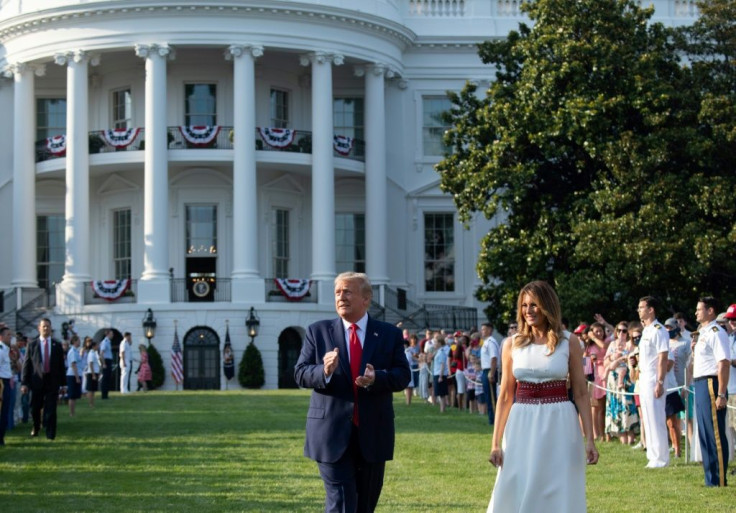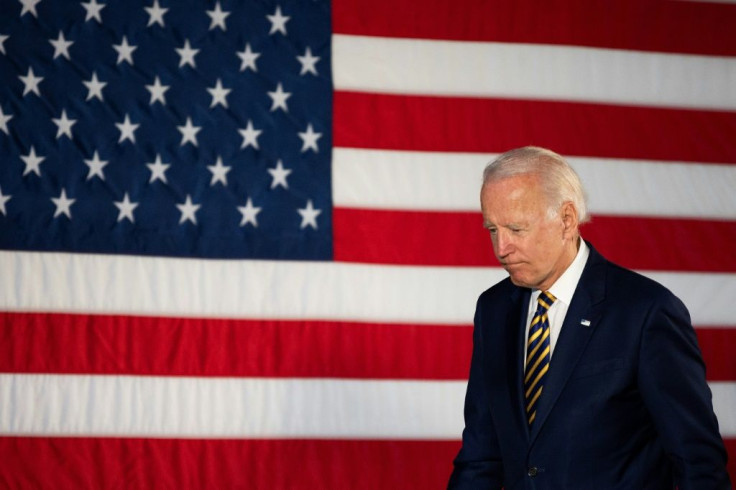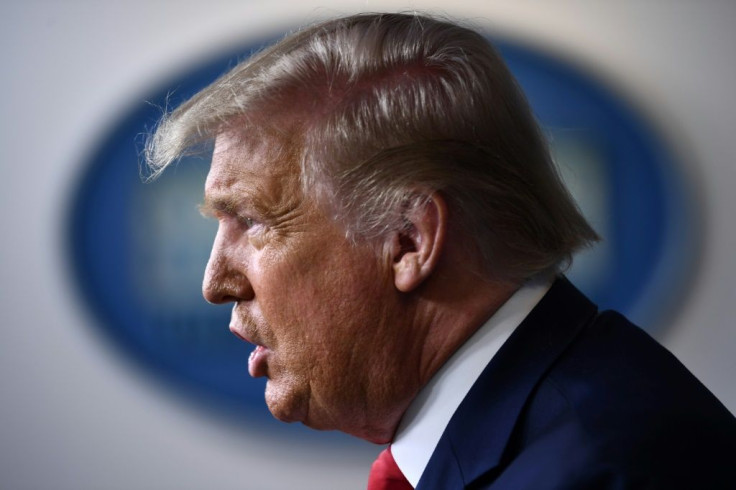Biden, Trump Scramble To Replan Nomination Speeches
The US election plunged deeper into unprecedented territory Wednesday when challenger Joe Biden announced he would accept his nomination virtually and President Donald Trump suggested breaking tradition by holding his own ceremony at the White House.
Citing coronavirus health risks, the Biden campaign said he would make his speech -- the high point of a candidate's race -- from his Delaware home where he has spent most of the last months.
He had planned to attend the August 17-20 Democratic convention in Milwaukee, which was already heavily scaled-down from the massive event typical before US elections.
But the party said the risk was still too high, and switched to a fully virtual affair.
"From the very beginning of this pandemic, we put the health and safety of the American people first," said Democratic National Committee chairman Tom Perez.

Trump, whose reelection bid is struggling with a badly wounded economy and surging COVID-19 pandemic, signaled he may also accept his nomination from home -- in his case, the White House.
Trump's August 27 acceptance speech was originally planned for North Carolina, but that was scrapped due to the coronavirus, as was the back-up location in Florida, leaving the Republican scrambling for alternatives.
However, presidents are required to separate their campaigning from taxpayer-funded governing. If he goes ahead, Trump would be breaking at the very least with presidential decorum by turning the South Lawn of the iconic building into his personal campaign stage.
Trump defended the idea on Fox News as "by far the least expensive" and said that logistically it would require far less movement of staff and guests.
He said he would rethink "if for some reason someone had difficulty with it."
The Democratic Speaker of the House of Representatives, Nancy Pelosi, quickly branded Trump's idea as "wrong," saying he would "degrade once again the White House as he has done over and over again."

In the Fox interview, the president also acknowledged that his reelection had become harder.
"The election was going to be a walk, a walk in the park," he said.
With optimism, he cited polls that have not been made public and insisted that "we're doing well."

The president railed, as he does almost every day now, against increased use of mail-in ballots, which states are rolling out so that people don't have to go in person to polling stations.
Trump says this would lead to a fraudulent election.
There is no evidence that this would happen and several states already rely heavily on the mail-in method, without any significant problem.
Democrats say Trump fears more mail-in voting because this will increase turnout and would hurt his chances.
According to Trump, a big increase in mail-ins will swamp the system, meaning no clear winner can be announced for possibly "months or years. They will never be able to tabulate their votes."
He also insisted that schools should reopen in September -- a major step in reinforcing Trump's message that the country has to move on from the pandemic, but many health experts and teachers say it would be too dangerous.
Trump again said the virus would soon vanish, repeating his numerous sunny predictions about a health crisis that has so far killed 157,000 people in the US.
"This thing's going away. It will go away like things go away and my view is that schools should be open," he said.
Despite Trump's claims to have internal polling showing him ready to repeat his 2016 surprise victory over Hillary Clinton, a professor who has become known as something of a US election oracle says otherwise.
Allan Lichtman, who teaches history at American University and has correctly predicted every presidential election since 1984, said in a New York Times op-ed that Biden will prevail.
Lichtman uses an analytical process that he calls the 13 "keys to the White House," focusing less on the actual candidates as the broader political standing of the two competing parties.
Trump campaign communications director Tim Murtaugh told CNBC that Lichtman shouldn't be believed.
"American voters will decide this election, not academics or professors," he said.
But Lichtman responded, telling AFP that his methodology shows the public will decide that this was a "failed presidency."
Trump "made the colossal mistake of thinking he can talk his way out of the crises that hit the country, the pandemic, the cries for social justice, the economic downturn. That doesn't work," he said.
© Copyright AFP 2024. All rights reserved.





















